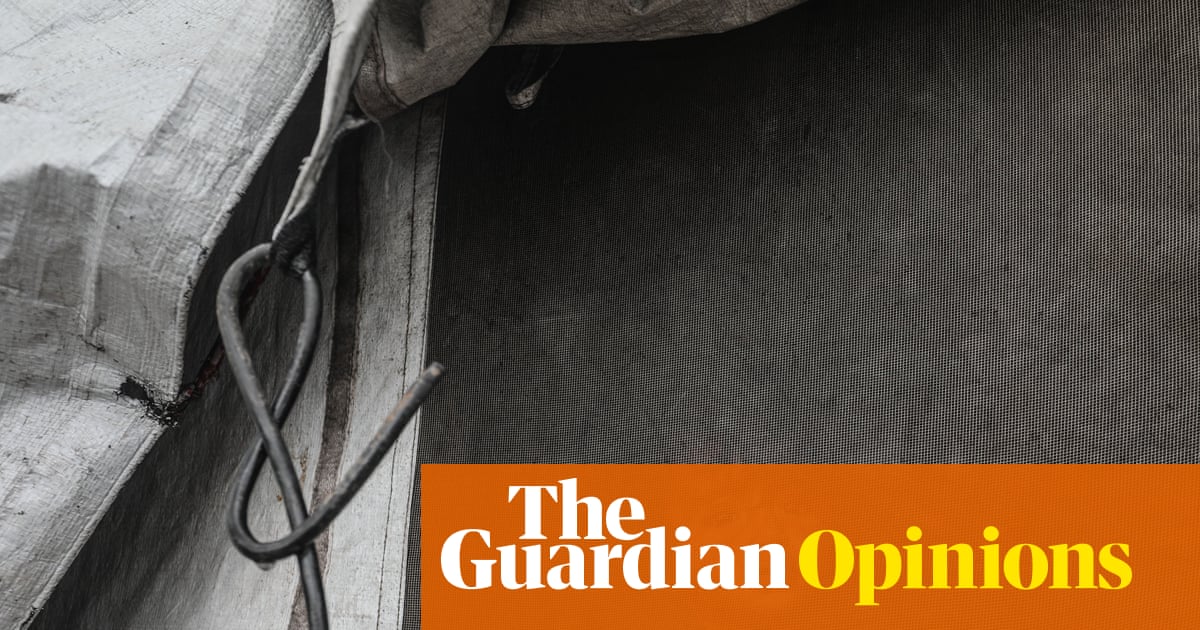Patricia Silva lays out an array of medicines and doctors’ letters on her kitchen table. She lives a few kilometres from a copper foundry operated by the British-headquartered mining company Anglo American in Catemu, a town in central Chile. Every morning and evening, she says, the air is filled with a faint blue smoke.
“It irritates your throat and makes you cough,” Silva says, remembering a day when her son Cristián, then three years old, began to have convulsions. “His face turned purple and he couldn’t breathe. He still has a red mark on his face from that episode.”
Cristián has a respiratory allergy, controlled by daily medication, that his doctor believes is caused by his environment. His older brother, Roberto, has had asthma since he was a baby. “The contamination is terrible,” says Silva, blaming the company.

Allegations of environmental breaches by Anglo American are frequent in Chile, where areas near the company’s operations are often called “sacrifice zones” by local communities because of human health problems, animal deaths and water shortages.
The criticism is also based on conclusions by Chilean health authorities. In 2019, the government declared that particle pollutants in Catemu’s air had exceeded permitted levels. It also warned of very high sulphur dioxide levels – although within legal limits. An environment ministry report showed that emissions of sulphur dioxide, nitrogen oxides and particle pollutants from Anglo American’s Chagres foundry were significantly higher than any other industry in the town. Between 2018 and 2020, the level of particle pollutants in the air in the area where the foundry is based far exceeded the permitted level.
After complaints, the government announced a decontamination plan for Catemu, but it has not been carried out. In 2022, Chile’s controller general’s office, which is responsible for fiscal and legal oversight of the public sector, noted high rates of respiratory illnesses among adults in Catemu and instructed the health ministry to conduct a study. The results have not been published.

Meanwhile, doubts about air quality persist. Silva’s aunt, Rosa Neira, a teacher at the nearby San José school, observes the blue smoke clouds drifting toward the school each morning. She lives with obstructive bronchitis and says 60 of the school’s 158 pupils, aged between five and 14 years old, missed days in this year’s first term as a result of respiratory illnesses.
“It’s beautiful here,” she says, pointing to hills dotted with green shrubs. “But living here harms our health. I use an inhaler every day. As soon as I retire, I will leave, but I worry for the children left behind.”
Anglo American says it respects Chilean environmental standards, arguing that progress has been made, and notes a 2020-2022 ministry of health study showing that rates of respiratory diseases and tumours in Catemu are similar to or lower than in other cities in the Valparaíso region. “Chagres is recognised for operating under the highest environmental standards among smelters in the country,” the company states, adding that it has invested in flue-gas treatment plants that “have reduced particulate matter emissions by 18%, fully complying with current regulations”.

Yet, it is not just Anglo American’s foundry that has been blamed for contaminating the environment in Chile. The company also operates two large copper mines and 12 tailings dams in the country, as well as having a share in a third copper mine.
Small farmers near Anglo American’s El Soldado mine in Valparaíso say the company releases water from its El Torito tailings dam to prevent overflow, causing problems downstream. Victor Vargas Caberra, part of a 1,700-member farming community in El Melón, says that each year some of their cows and goats die after drinking from streams. He also sees dead fish, rabbits, ducks and other birds.
“The water in the river and our wells is toxic. We can’t drink it or use it to wash. If you fill up a bottle, the water is a horrible yellow colour,” he says.
The farmers also say grey dust blows from the mining operations and settles on their plants and the windowpanes of their homes. Several have health problems and want the authorities to investigate. Luis Acevedo, the president of the El Melón farmers’ association, says: “We’re living in a sacrifice zone. Anglo American has polluted the water and the air we breathe.”

Anglo American says it “does not endanger the health of people or animals” and “controls the quality of surface and groundwater” in accordance with Chilean legislation and international environmental standards.
The company has been charged with environmental non-compliance failures at the mines it operates, El Soldado and Los Bronces.
In 2020, Chile’s environmental authority found that discharges from El Torito dam had affected water quality in the local El Cobre River. In December 2024, the environmental regulator charged Anglo American with three counts of environmental non-compliance at El Soldado mine, including deficiencies in drainage and water infiltration management. The authority also fined the company for 16 environmental offences at the mine in 2014.
Chile has suffered several droughts in the last 15 years, but farmers – who face severe water shortages – and residents also blame Anglo American for buying up the rights to use local water. Between 2022 and 2024, Anglo American was fined four times for water-use irregularities in the Valparaíso region.
In July, the Valparaíso water regulator fined the company for unauthorised water extraction that affected 5,000 people. The regulator asked prosecutors to investigate whether a crime punishable by prison was committed. The company denies taking unauthorised water from this location and says it will take legal steps to reverse the decision.
Anglo American’s largest mine in Chile, Los Bronces, is 40 miles (65km) from the capital, Santiago. The mine’s waste is transported through an ore slurry pipeline to Las Tórtolas tailings dam 35 miles away. Residents of Huertos Familiares, who live near the dam, report water shortages and contamination.

It used to be a community of smallholders but now, because there is not enough water, only one farmer in the village, Luis Pérez Orostegui, still cultivates crops. Pérez uses just 2 hectares (5 acres) of his 52-hectare farm for planting because the ground is so dry.
“There’s a lack of rain, but the mine is also using up the water,” he says, adding that he has to migrate to work on a farm in another region.
The environmental regulator fined the company six times in 2014 for ecological infractions at Los Bronces and filed four new charges against the mine in December last year, including a failure to control seepage from Las Tórtolas dam and an ongoing failure to manage acid drainage from its Donoso waste deposit.
Anglo American says: “In 2022, Los Bronces and El Soldado mining operations and the Chagres smelter were awarded the Copper Mark in recognition of responsible copper production practices.” The company also says that it has developed compliance plans to address the new charges and those made against its El Soldado mine. Authorities are now reviewing the plans.
Anglo American – which recently announced its merger with Canada’s Teck Resources to create Anglo Teck, in the second biggest mining deal ever – has won approval to expand the Los Bronces mine, despite Chile’s environmental authority raising concerns this could exacerbate air pollution and damage glaciers in the central Andes.

These glaciers are vital water sources for Santiago and have significantly retreated over 60 years. The plan involves mining underneath the protected Yerba Loca nature reserve, which contains several glaciers.
The company has already built an exploratory five mile tunnel underneath three glaciers. Anglo American also plans to transport 48m tonnes of toxic waste through a 25-mile pipeline via mountains from an old dam near Los Bronces to the Las Tórtolas tailings facility, 25 miles from Santiago.
Anglo American says the plan was “evaluated by the authorities and received environmental approval”. Yet Cristóbal Rodríguez, a campaigner for the water rights group Modatima, along with several associations, is challenging the plan and asking for a new, independent impact study.
“This is an earthquake zone,” Rodríguez says. “Moving thousands of tonnes of toxic waste through the mountains to a dam not far from the capital could lead to an environmental disaster.”

 3 months ago
89
3 months ago
89

















































